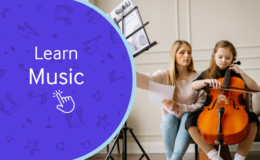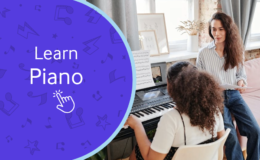
About Course
This course introduces young children (ages 5-8) to basic scientific concepts through hands-on activities and simple experiments. The focus is on nurturing curiosity, encouraging observation, and developing a foundational understanding of the natural world.
Course Duration
Week 1: Introduction to Science and the Senses
Objective: Familiarize children with the concept of science and the five senses.
Content:
Understanding what science is and what scientists do.
Exploring the five senses (sight, smell, touch, taste, hearing).
Activities:
“Sense Stations” where children use each of their senses to explore different objects (e.g., smelling flowers, touching textures, tasting safe food items).
Drawing pictures of things they observe using their senses.
Week 2: Exploring Plants
Objective: Introduce children to basic botany and the life cycle of plants.
Content:
Parts of a plant (roots, stem, leaves, flowers).
What plants need to grow (sunlight, water, soil).
Activities:
Planting seeds in small pots and observing growth over time.
“Parts of a Plant” craft where children create a plant using paper and labels.
Observing different types of leaves and discussing their shapes and textures.
Week 3: Exploring Animals
Objective: Teach children about different types of animals and their habitats.
Content:
Introduction to different animal groups (mammals, birds, reptiles, amphibians, fish).
Understanding where animals live and what they need to survive.
Activities:
“Animal Matching” game where children match animals to their habitats.
Creating a simple “Animal Book” with drawings and facts about their favorite animals.
Watching short videos of animals in their natural habitats.
Week 4: Understanding Weather
Objective: Introduce basic weather concepts and observation.
Content:
Understanding different types of weather (sunny, cloudy, rainy, snowy).
How to observe and describe the weather.
Activities:
“Weather Journal” where children record the weather each day with drawings or simple words.
Creating a “Weather Wheel” that they can spin to show the current weather.
Simple experiment: Making a rain gauge using a plastic bottle.
Week 5: Exploring the Earth and Space
Objective: Introduce children to basic concepts about the Earth, the sun, moon, and stars.
Content:
Understanding that the Earth is a planet in space.
Basic introduction to day and night, and the phases of the moon.
Activities:
Making a simple model of the solar system using foam balls or paper.
“Moon Phases” craft using Oreos or paper cutouts.
Observing the sky during the day and at night, and discussing what they see.
Week 6: Introduction to Simple Machines
Objective: Teach children about simple machines and how they help us in everyday life.
Content:
Introduction to basic simple machines (lever, pulley, wheel and axle).
Understanding how simple machines make work easier.
Activities:
Building a simple lever using a ruler and a block.
“Pulley Exploration” where children experiment with lifting objects using a basic pulley system.
Identifying simple machines in the playground (e.g., seesaw as a lever).
Week 7: Understanding the Water Cycle
Objective: Introduce the concept of the water cycle and its importance.
Content:
Stages of the water cycle (evaporation, condensation, precipitation).
Understanding how water moves through the environment.
Activities:
“Water Cycle in a Bag” experiment where children observe condensation and precipitation.
Drawing the water cycle and labeling its stages.
Simple experiment: Observing evaporation by placing water in a sunny spot and tracking its levels over time.
Week 8: Review and Science Showcase
Objective: Reinforce all the concepts learned and celebrate the children’s discoveries.
Content:
Review key concepts: senses, plants, animals, weather, Earth and space, simple machines, water cycle.
Showcase of experiments and crafts completed during the course.
Activities:
Setting up a “Science Fair” where children display their projects and explain them to classmates and parents.
Science games and quizzes to review concepts.
Awarding certificates for participation and curiosity in science.








